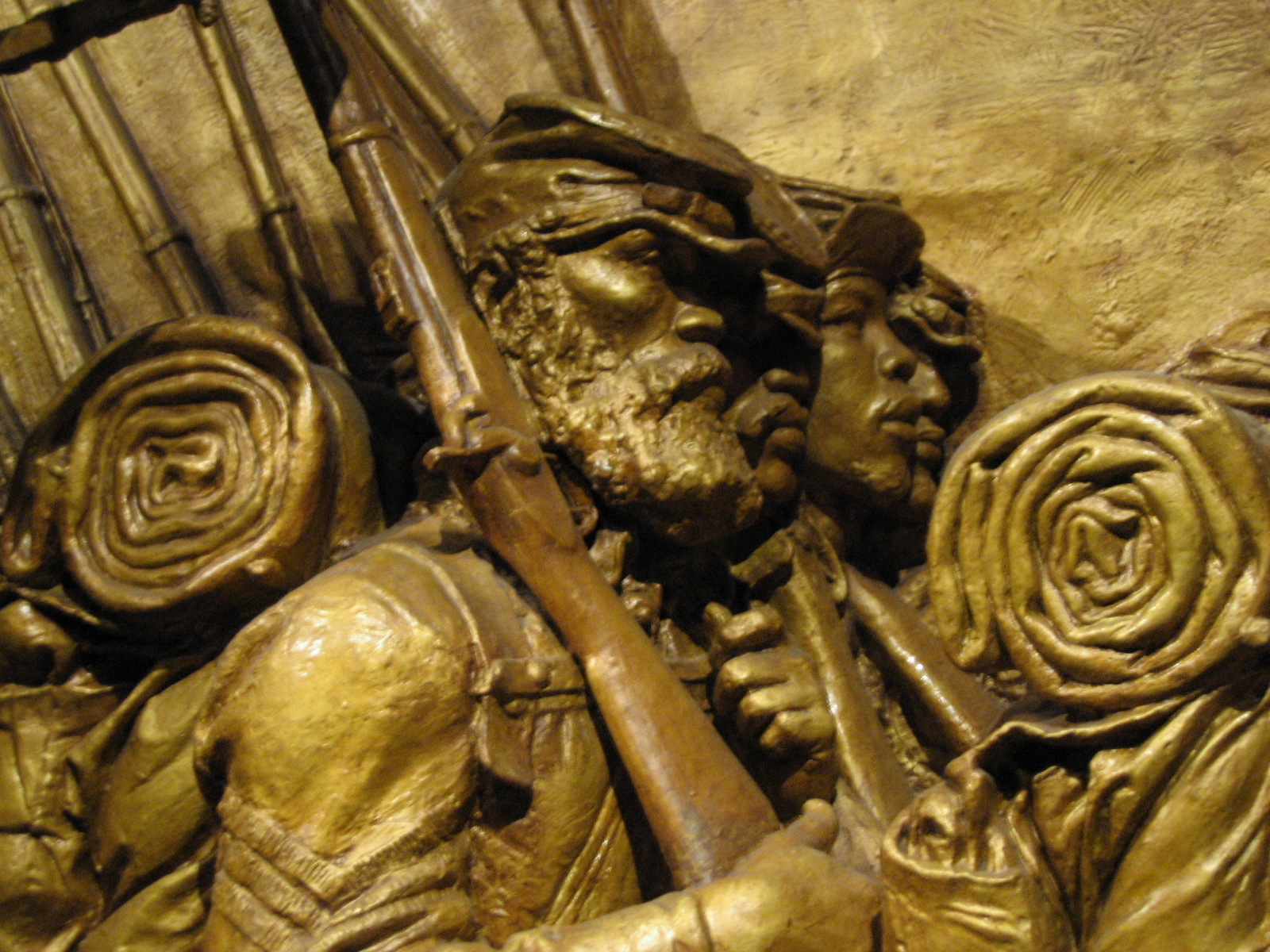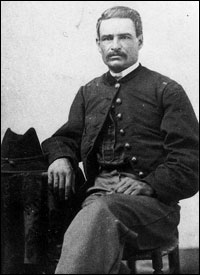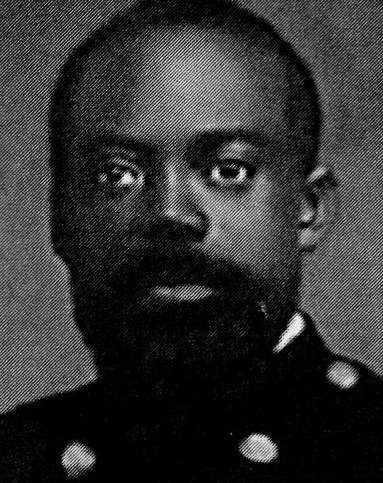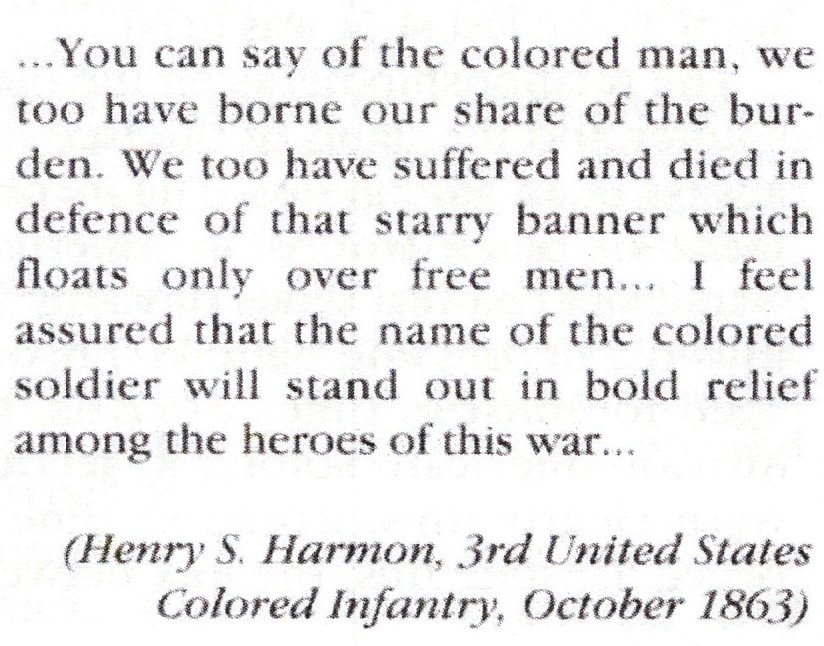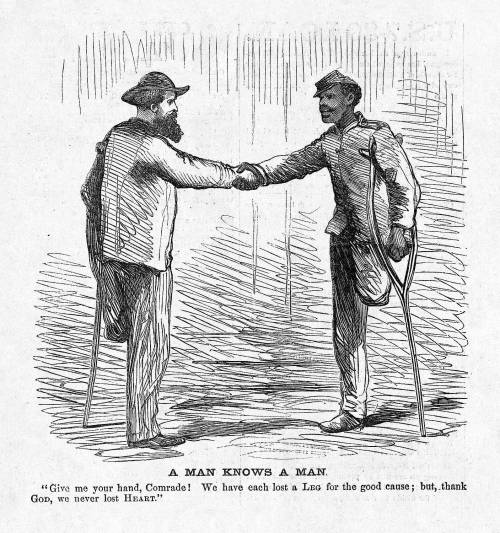The 54th proved that African Americans were indeed "men" with the intelligence, ability and bravery to fight.
"[M]en of the regiment proved that they could learn the soldiers' drill [and] the nine steps to preparing and firing a musket rifle..." ~Whitehair, 251.
They risked their lives for racial equality.
Instilled pride and self confidence.
~At Beaufort, South Carolina, the men of the 54th "were hailed as liberators by the African American population." ~Whitehair, 31.
~"Robert Gould Shaw had given the men of the 54th Massachusetts Infantry a confidence that overcame their self-doubt, and an ability to win and endure, an identity, and immortality that would ascend future decades." ~Whitehair, 115.
~They successfully fought for equal pay, saying, "we demand to be recognized as soldiers of the Republic, entitled to the same rights which white soldiers have. Until you grant that, we will not touch a dollar." ~Citing Captain Luis F Emilio, Whitehair, 27.
~After 18 months of waiting, on September 28, 1864 the men of the 54th finally got the equal pay they had demanded.
Secretary of War Stanton: "The tenacious brilliant valor displayed by the troops of the race had sufficiently demonstrated to the President and country the character of the service of which they are capable." ~Stanton quoted in Whitehair, 251.
Their bravery at the Second Battle of Fort Wagner led to more black enlistments. These recruits were critical to winning the Civil War.
"...if this Massachusetts Fifty-Fourth had faltered when its trials came, two hundred thousand colored troops for whom it was pioneer would never have been put in the field." ~Whitehair, 252.
"...many Northern generals after the war... believed the charge by 700 African Americans against Fort Wagner on July 18, 1863 was the High Tide or turning point of the Civil War and changed the war indefinitely." ~Whitehair, 252.
General Grant said, "by arming the negro, we have a powerful ally. This is the heaviest blow yet given the Confederacy." ~Grant, quoted in Whitehair, 251.
"African-American troops comprised 10 percent of the total Union fighting army... Overall, one third of all African-Americans who fought were casualties of the Civil War." ~Susan-Mary Grant, "Pride and Prejudice in the American Civil War." History Today, September 1998, pps 41-48.
They shattered barriers for other African Americans to join the military.
Role models: They were "the perfect model for other [230,000] African Americans who desired to enlist and serve in the United States Army and Navy during America's Civil War." ~Whitehair, 251.
William H Carney was "a role model for young and old African Americans. He was someone they could look up and point to that an African American was willing to fight and do his duty to preserve the Union and end the horrors of slavery." ~Whitehair, 111.
"On January 17, 1865, a major milestone was accomplished in the history of the United States Army. Lieutenant Stephen Swails of the 54th Massachusetts Infantry became the first African American to be commissioned as an officer in the United States Army." ~Whitehair, 232.
